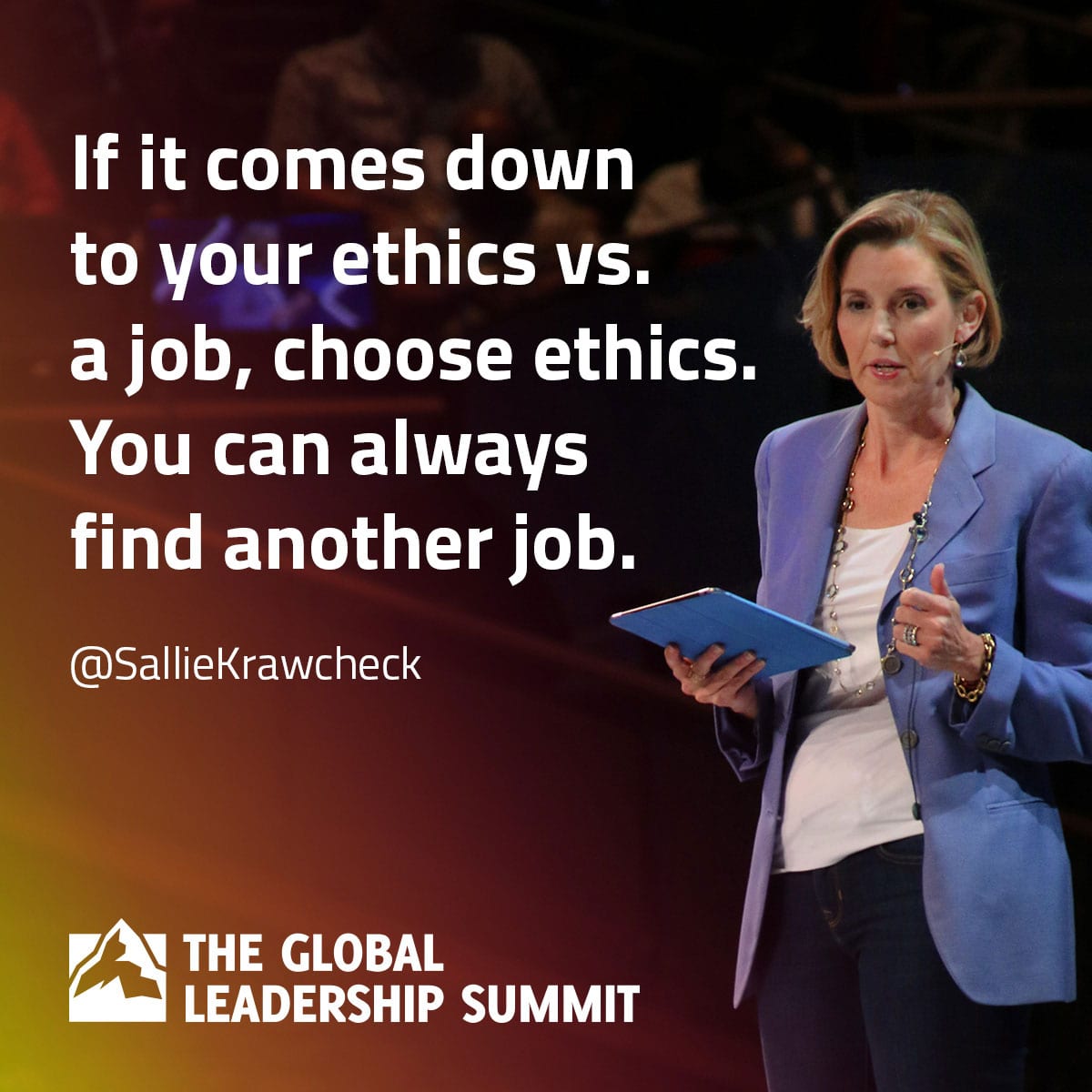
If it comes down to your ethics vs. a job, choose ethics. You can always find another job.

If it comes down to your ethics vs. a job, choose ethics. You can always find another job.

Robin experienced a background of abuse, including sexual abuse by a pastor, and her world felt apart, including faith in God and her hope in the church. But when she went to a Summit and heard a talk about the church being the hope of the world, a seed was planted that eventually led Robin to see God in a different light, leading her to use her leadership gifts for the local church, even working with pastors. The place some of her worst pain has become the place of her greatest healing. And the Summit helped her gain a grander vision for what the church can do when leaders get better.
No one is more surprised by my work and dedication to the church than I am. But to understand why, you have to understand my past.
I told no one about my abuse as a young child. Like most sexual abuse victims, I grew up telling myself my life was normal, and I pretended it didn’t matter. No one, including me, could understand the problems that were developing as a result of my abuse and the maladaptive coping strategies that were becoming part of my lifestyle.
I attended church regularly and found safety and enjoyment in various programs, but I still didn’t deal with my past and continued to remain silent about all that had happened to me.
But my past caught up with me.
I was living away from home and desperately needed help to undo the damage done. Talking after years of silence seemed like torture. At the time I didn’t even know what was wrong with me, let alone have the words to explain what had happened. Finally, out of desperation I turned to the one place that had always been safe for me. I went to my church to talk to my pastor.
In what still seems completely unfair to me, that pastor ended up sexually abusing me, and I was thrown into another round of abuse that not only added to the emotional damage I already carried, but completely stripped me of my love, faith and trust in God. Being abused by the one person, who represented the only safe haven I had in the world, devastated me. Eventually I was able to confide in a second pastor who was able to end the abuse, but was unable to help me deal with what had happened.
I felt abandoned by the church, by the pastors and by God. There was no justice done, no guidance and no support. Not only was I left physically and emotionally scarred, but the spiritual damage cut deeper than I could ever imagine.
I gave up on church and I gave up on God.
For more than 15 years, I lived apart from God—hurt and angry with Him for allowing this to happen. Using the unhealthy coping strategies I had learned as a child, I continued to pretend nothing was wrong. I managed to succeed outwardly in my professional life, but inwardly I lived a life of isolation. Being at church scared me; being near pastors terrified me. I never allowed myself to get connected.
I wished I could have become an atheist, but I was too busy hating God to stop believing in Him.
I knew something was missing in my life and despite the pain the church had caused me, I felt the source of healing was there. I wanted help, but I struggled to trust anyone, including God. Then I joined Ebenezer Church. While there, I went to a Summit event and heard about the church being the hope of the world (something I couldn’t quite fathom since it had been the complete opposite of the hope of my world.) But that planted a seed that eventually led me to see God in a different light.
I joined Ebenezer with an, “If this doesn’t work, I’m giving up on God” attitude. I don’t suppose you should actually give God an ultimatum, but I felt like I did. However, I also realized if God was going to help me, I would need to do some work too. I started attending services, reading my Bible, going to a Bible study, and, little by little, started listening to God in my life. Eventually I made the courageous and terrifying decision to talk about my past with another pastor. But trying to break the silence again created incredible guilt, shame and embarrassment, but I managed to keep going.
I truly believe Ebenezer is a place where Jesus Christ changes lives. I am an example of that transformation. Through God’s love and the church, I started to understand how my past had damaged my ability to trust, feel my emotions, open myself up to true relationships and depend on others. I’ve started learning how to reframe my thinking and my behavior to break out of the walls I had built around myself so I can better lead the life God wants for me.
Slowly, guilt, shame and embarrassment are being replaced by my knowledge that I have worth as a child of God. I also started to understand God has blessed me with several gifts and talents, many of which could be used in service to the church.
I find myself now in a leadership position in church, working alongside pastors.
While I don’t think I’ll ever understand why God didn’t stop the things that happened to me, I have come to the conclusion that God didn’t cause them. And I believe He suffered with me the whole time; He wept for my pain, and He deeply cared what was happening to me. I also think He will use my pain for good if I let Him.
It’s amazing to me that the place of my very deepest hurt has become the place of my greatest healing.
The Leadership Summit helped me to gain a grander vision for what the church can do when leaders get better. Wanting to serve Him is a reflection of my gratitude and a response to God’s love. I am thankful to Ebenezer for teaching me Jesus wants a relationship with me, the sins of my past are forgiven, and I am, first and foremost, a child of a loving Father who cares about me.

Adam Grant’s (GLS 2015) new book explores how original thinkers succeed in business. In the post below, he talks to some of America’s most iconic entrepreneurs on how they would convince people to buy into a novel idea.
Sometime this year, you pitched a new idea to someone. If you’re an entrepreneur, you probably tried to persuade an investor to fund your startup. If you’re an employee, you might have asked your boss to support improved working conditions or better parental leave policies. If you’re a leader, chances are you encouraged your team to take a risk on innovation or test-drive a new technology.
If your idea fell on deaf ears, you’re not alone. A dozen publishers turned down Harry Potter—it was apparently too long for a children’s book. (If anything, it was too short.) Movie studios rejected Star Wars and Titanic; Seinfeld was nearly cancelled by NBC for being a show about nothing, when it was really a show about everything. Excite declined to shell out $1.6 million for a little search engine called Google. How many other great ideas are sitting on the cutting room floor?
And what can you do to get yours heard?
Last month I published a book, Originals, about how we can improve at championing our ideas. I wanted to learn from the best, so I sat down with entrepreneurs who mastered the pitch, made billions and became investors themselves. Now they’re on the other side of the table—they spend their days listening to other people’s pitches. And I couldn’t resist turning the tables on them.
Mark Cuban sold Broadcast.com to Yahoo!, owns the Dallas Mavericks and Landmark Theatres and has invested about $20 million in entrepreneurs on Shark Tank. Reid Hoffman founded LinkedIn, got it funded by Greylock with a powerful pitch, and then became a partner there; his investments include Airbnb and Facebook.
When I asked them to demonstrate a pitch, three common themes jumped out at me.
When you pitch an idea, you suffer from the curse of knowledge: you’ve spent days, months or years thinking about the problem. It’s so crystal-clear in your mind that you lose sight of how it sounds to other people. Before people will believe your idea will make the world better, you have to explain what’s wrong with the world right now.
This isn’t unique to entrepreneurs. In his most famous speech, Martin Luther King, Jr. spent more than 11 minutes denouncing the injustice of today before revealing his dream for tomorrow. As communication expert Nancy Duarte explains, you have to show people what’s unacceptable about “what is” before they’ll get excited about “what could be.”
“I’ve sat down with people who lectured to me for an hour about entrepreneurship,” Reid lamented. It’s not much more effective to deliver a monologue and then ask, “So what do you think?” Great entrepreneurs involve him in a dialogue: “How do you think I should solve this particular problem?” That sends a clear message: “I’m not just trying to get your money, I’m actually trying to treat you as a partner. I am also intellectually alive and learning…. Pitching is a collaboration.”
* * *
Read Adam’s third observation in the original post here on LinkedIn – and watch Mark Cuban and Reid Hoffman make their pitches on video.

An honest mirror shows you what you look like when you’re not at your best.
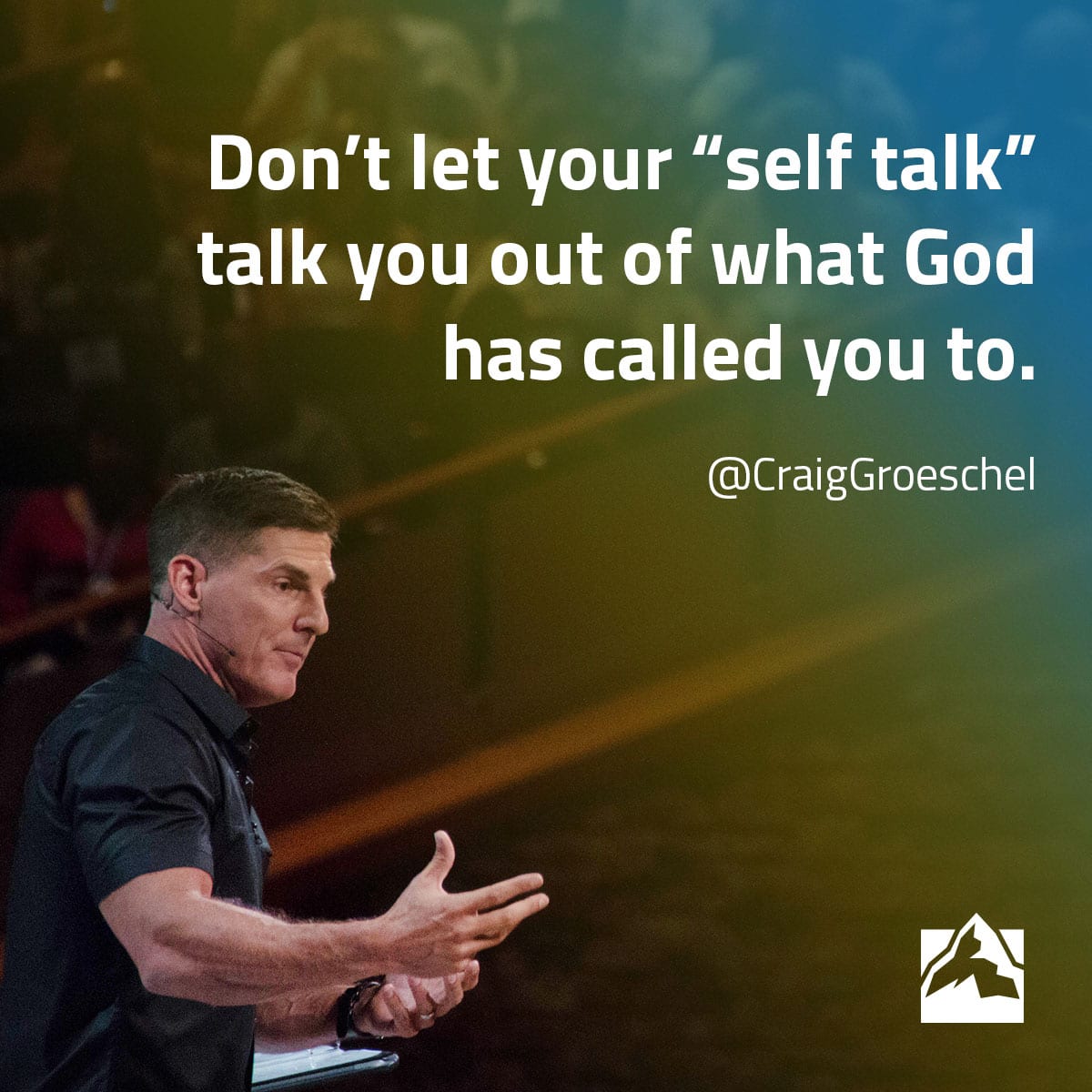
Don’t let your “self talk” talk you out of what God has called you to do.
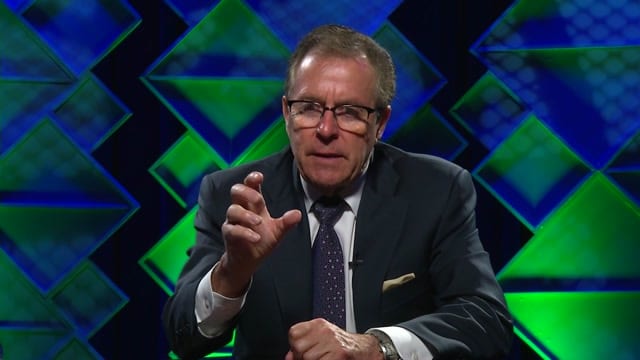
Do you know the profile requirements for success in a particular role? Horst Schulze, CEO of Capella Hotel Group, shares his insights into the process of hiring.
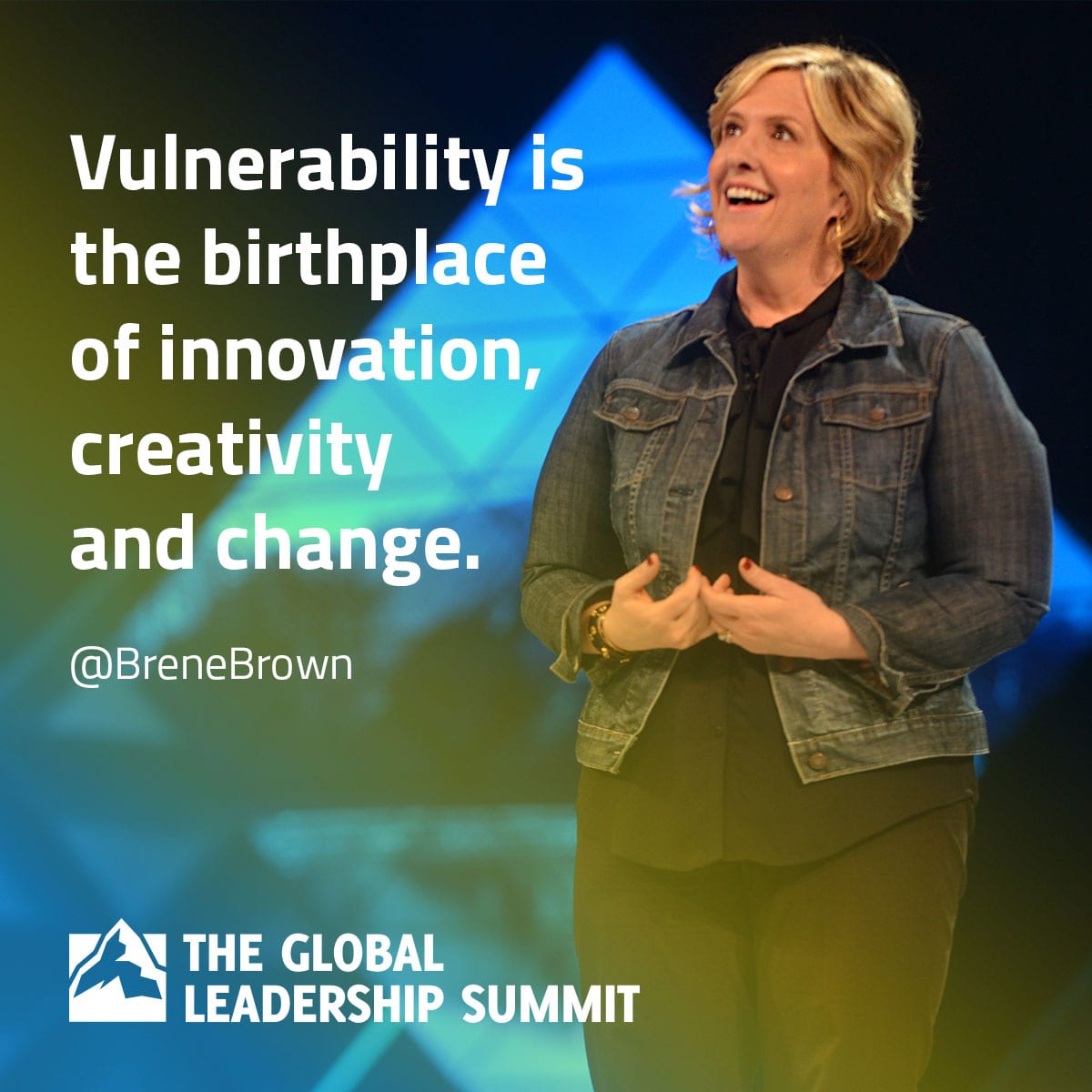
Vulnerabity is the birthplace of innovation, creativity, and change.
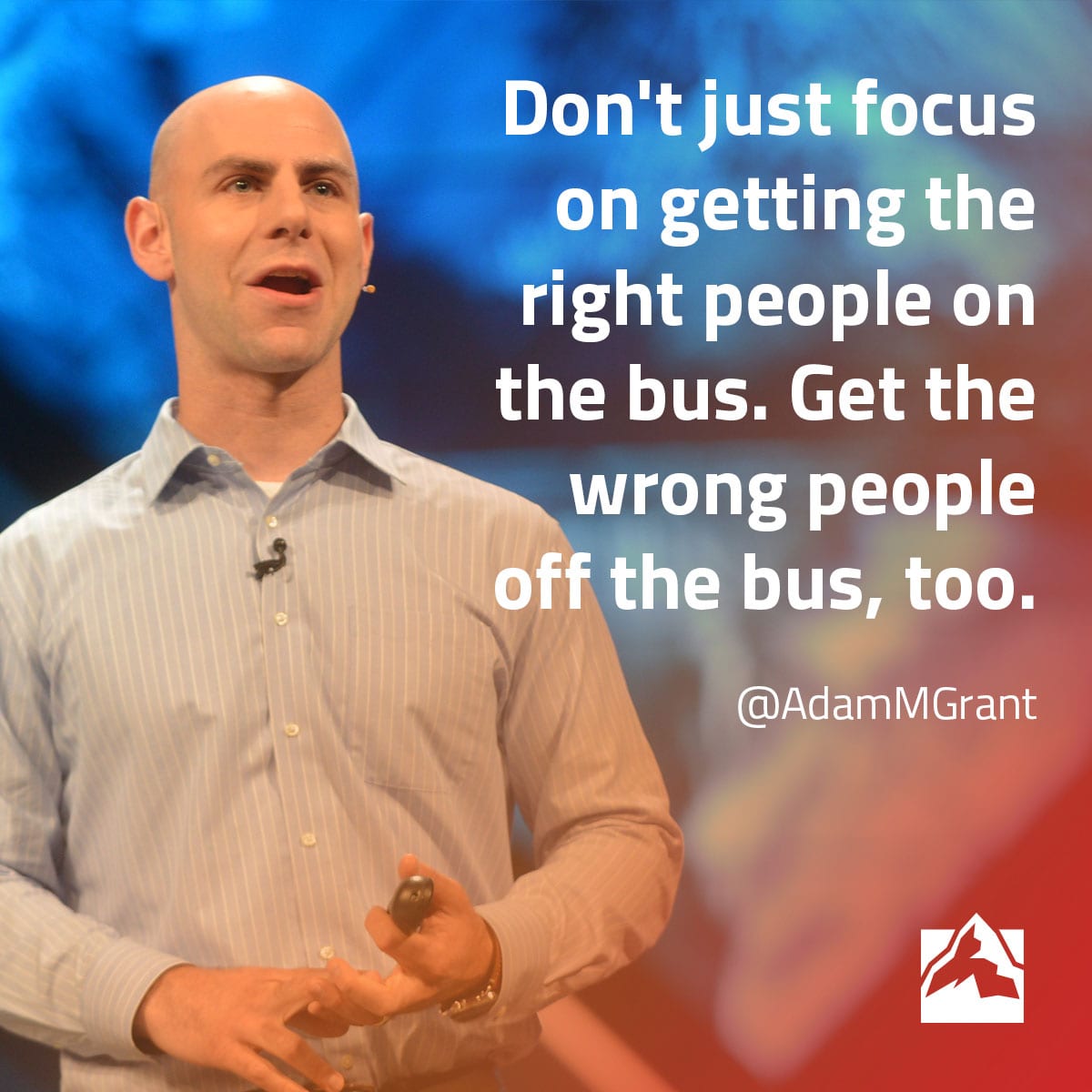
Don’t just focus on getting the right people on the bus. Get the wrong people off the bus, too.
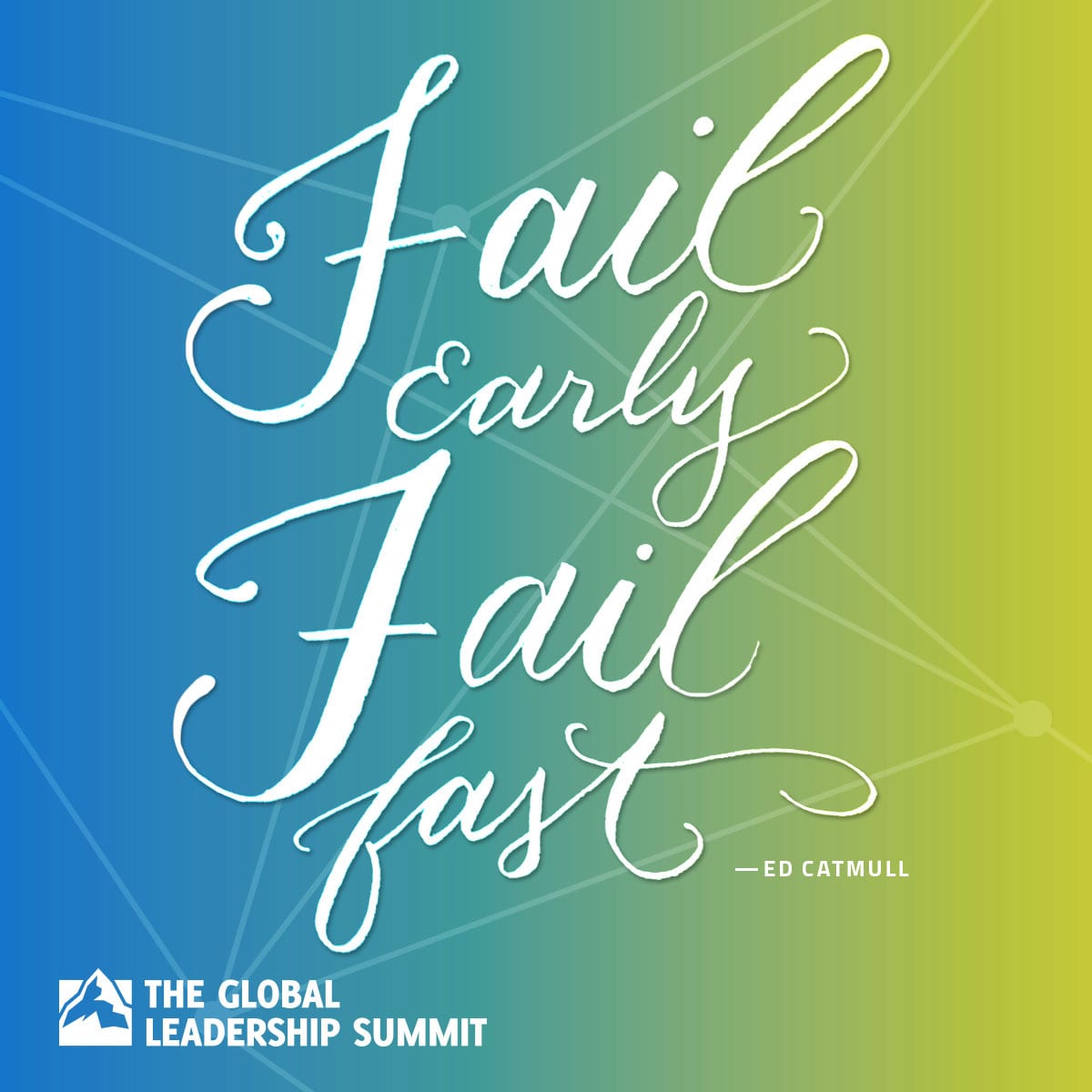
Fail early, fail fast.

We are thrilled to welcome Horst Schulze, CEO of Capella Hotel Group and founding president of The Ritz-Carlton Group, back to the Summit with fresh, new content.
Horst Schulze’s funny and insightful 2015 Summit talk, Creating World Class Service, has drawn standing ovations all over the world. Since that time, as we have developed a closer relationship with him, it became clear that we barely scratched the surface of his leadership wisdom. We are excited to bring him back with all-new content—helping us learn how to increase the excellence and efficiency of our churches and organizations.
So – just for fun – let’s relive one of the most memorable moments from his 2015 message as a foretaste of what we can look forward to in August. Join Horst as he walks into the bank . . .
To attend the GLS at a premier host site near you, register here by May 24, 2016 for the best rates. Check out the The Global Leadership Summit website for additional information and to see other members of the faculty.
 Horst Schulze’s vision has helped reshape standards of excellence in the hospitality and service industries. Under his leadership, the Ritz-Carlton Group was twice awarded the prestigious Malcolm Baldridge National Quality Award—the first and only hotel to win even one such award. In 2015, Schulze delivered an inspiring and practical talk at the Summit, and will be back this year to unpack how we can build organizations that value efficiencies.
Horst Schulze’s vision has helped reshape standards of excellence in the hospitality and service industries. Under his leadership, the Ritz-Carlton Group was twice awarded the prestigious Malcolm Baldridge National Quality Award—the first and only hotel to win even one such award. In 2015, Schulze delivered an inspiring and practical talk at the Summit, and will be back this year to unpack how we can build organizations that value efficiencies.
“We welcome and encourage comments on this site. There may be some instances where comments will need to be edited or removed, such as:
If you have any questions on the commenting policy, please let us know at heretoserve@globalleadership.org”
Recent Comments